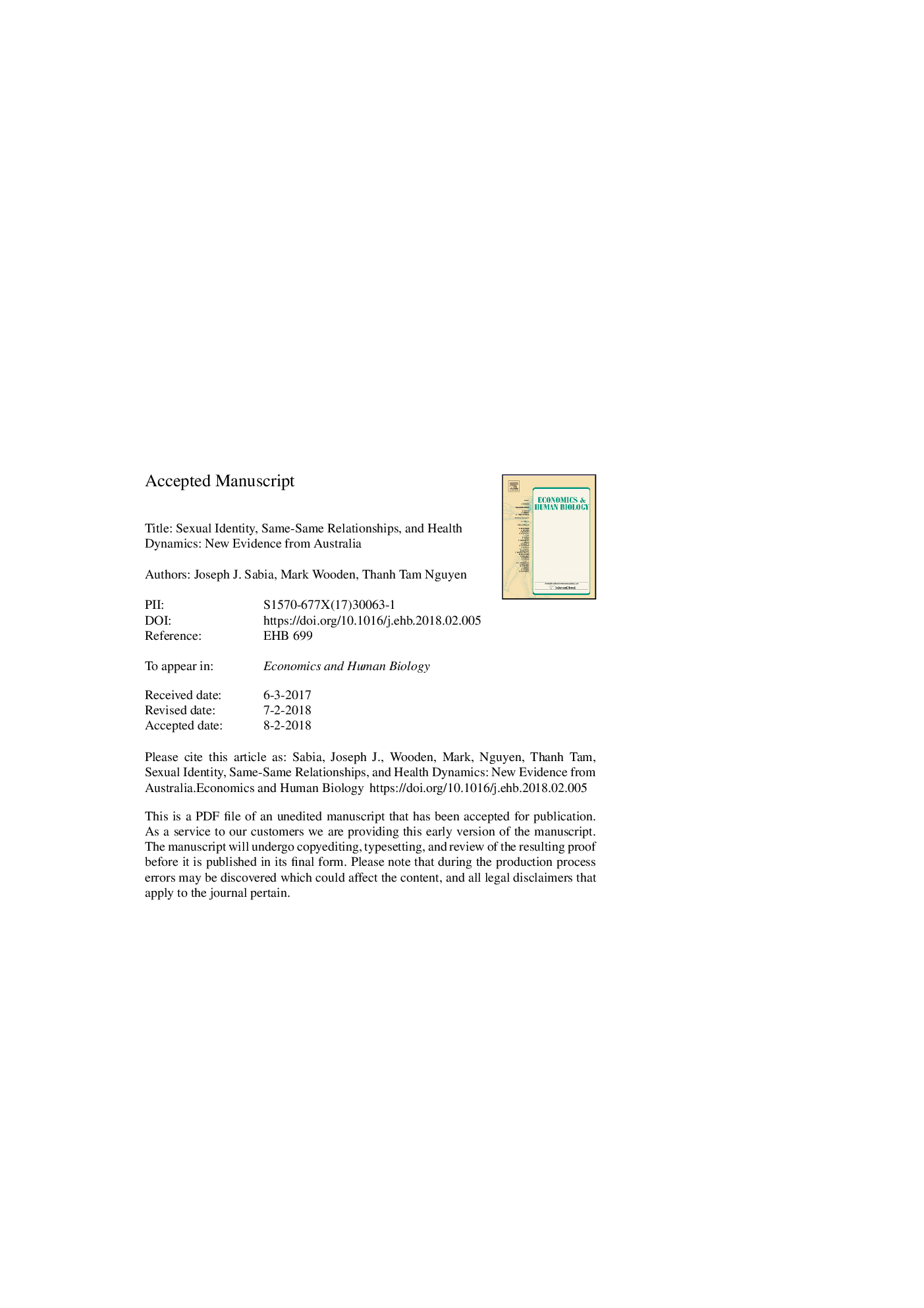| Article ID | Journal | Published Year | Pages | File Type |
|---|---|---|---|---|
| 7348093 | Economics & Human Biology | 2018 | 51 Pages |
Abstract
Prior research has found that opposite-sex marital and cohabiting relationships are associated with improvements in health. However, studies examining the health dynamics of same-sex relationships are sparser because few nationally representative longitudinal datasets collect information on adults' sexual identity. Using newly available data on sexual minorities from the Household, Income and Labour Dynamics in Australia (HILDA) Survey, we estimate the effects of Lesbian/Gay/Bisexual (LGB) identification and same-sex relationships on health dynamics. We document two key findings. First, sexual minorities in Australia are more likely to engage in risky health behaviors and report worse health than their heterosexual counterparts. Second, after exploiting the longitudinal nature of the HILDA and accounting for selection into relationships using the dynamic panel approach of Kohn and Averett (2014), we find that while opposite-sex partnerships are associated with a 3 to 7 percentage-point decline in risky health behaviors and improved physical and mental health, the health benefits of same-sex relationships are weaker, particularly for men.
Keywords
Related Topics
Life Sciences
Agricultural and Biological Sciences
Agricultural and Biological Sciences (General)
Authors
Joseph J. Sabia, Mark Wooden, Thanh Tam Nguyen,
